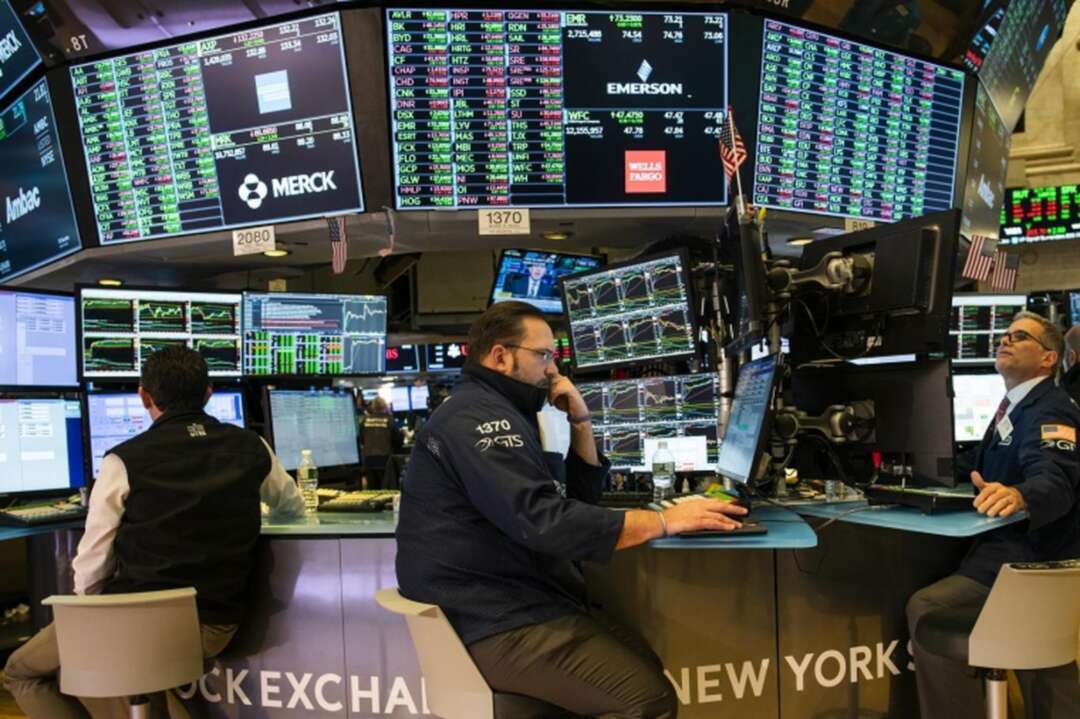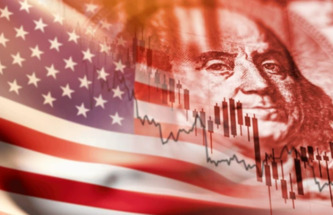-
$3 Trillion Evaporates from Global Markets as Stock Indices Plummet

$3 Trillion Evaporates from Global Markets as Stock Indices Plummet
The sharp decline in global markets reflects a state of financial panic, raising fears of a repeat of the 2008 global financial crisis.
International financial markets have wiped out more than $3 trillion in market value due to massive losses at the start of the trading week. The fear index soared to its highest levels in four years, surpassing 120% compared to last Friday.
The Nikkei 225 index in Japan recorded the largest drop, with its worst daily performance since 1987, resulting in a loss of approximately $620 billion in market value, according to estimates by "Al Arabiya Business." This does not include all Japanese stocks, which also suffered significant losses.
Additionally, the MSCI Emerging Markets Index incurred losses of $504 billion, while the Stoxx 600 European Index saw losses exceeding $300 billion.
As American markets opened with losses, the extent of the losses expanded significantly, with American markets adding over $2 trillion in losses. The market value of the world's top 9143 companies dropped to $101.8 trillion, down from $103.8 trillion at the start of American market trading.
Estimates by "Al Arabiya Business" do not cover all global markets, so the figure could increase. What is certain is that the current stock losses are the greatest since the COVID-19 pandemic and could approach levels seen during the 2008 global financial crisis.
Read More:
Damascus' Silence in the Conflict Equation Raises Questions: A New Strategy or a Temporary Tactic?
In this context, Michel Salibi, Senior Market Analyst at FXPro, stated that international financial markets are experiencing a state of panic and severe liquidation of stocks and cryptocurrencies, attributed to two main reasons.
In an interview with "Al Arabiya Business," he said there is growing concern over "carry trade" operations since last week following an interest rate hike in Japan, despite the yen falling to levels of 143 yen to the dollar.
He explained that financial markets had reached high levels, prompting investors to withdraw and turn to the US Treasury bond market, especially ten-year bonds. He noted that American employment data exacerbated market fears last Friday.
He added, "I do not see any signs of an economic recession or an urgent intervention by the US Federal Reserve to lower interest rates, and there are indications of a potential 50 basis point cut in September."
He confirmed that he does not expect a change in market direction despite the more than 10% drop in stock markets, and that the declines are considered natural after a strong rise in previous periods, particularly for technology stocks.
Levant News
You May Also Like
Popular Posts
Caricature
BENEFIT Sponsors BuildHer...
- April 23, 2025
BENEFIT, the Kingdom’s innovator and leading company in Fintech and electronic financial transactions service, has sponsored the BuildHer CityHack 2025 Hackathon, a two-day event spearheaded by the College of Engineering and Technology at the Royal University for Women (RUW).
Aimed at secondary school students, the event brought together a distinguished group of academic professionals and technology experts to mentor and inspire young participants.
More than 100 high school students from across the Kingdom of Bahrain took part in the hackathon, which featured an intensive programme of training workshops and hands-on sessions. These activities were tailored to enhance participants’ critical thinking, collaborative problem-solving, and team-building capabilities, while also encouraging the development of practical and sustainable solutions to contemporary challenges using modern technological tools.
BENEFIT’s Chief Executive Mr. Abdulwahed AlJanahi, commented: “Our support for this educational hackathon reflects our long-term strategic vision to nurture the talents of emerging national youth and empower the next generation of accomplished female leaders in technology. By fostering creativity and innovation, we aim to contribute meaningfully to Bahrain’s comprehensive development goals and align with the aspirations outlined in the Kingdom’s Vision 2030—an ambition in which BENEFIT plays a central role.”
Professor Riyadh Yousif Hamzah, President of the Royal University for Women, commented: “This initiative reflects our commitment to advancing women in STEM fields. We're cultivating a generation of creative, solution-driven female leaders who will drive national development. Our partnership with BENEFIT exemplifies the powerful synergy between academia and private sector in supporting educational innovation.”
Hanan Abdulla Hasan, Senior Manager, PR & Communication at BENEFIT, said: “We are honoured to collaborate with RUW in supporting this remarkable technology-focused event. It highlights our commitment to social responsibility, and our ongoing efforts to enhance the digital and innovation capabilities of young Bahraini women and foster their ability to harness technological tools in the service of a smarter, more sustainable future.”
For his part, Dr. Humam ElAgha, Acting Dean of the College of Engineering and Technology at the University, said: “BuildHer CityHack 2025 embodies our hands-on approach to education. By tackling real-world problems through creative thinking and sustainable solutions, we're preparing women to thrive in the knowledge economy – a cornerstone of the University's vision.”
opinion
Report
ads
Newsletter
Subscribe to our mailing list to get the new updates!






















